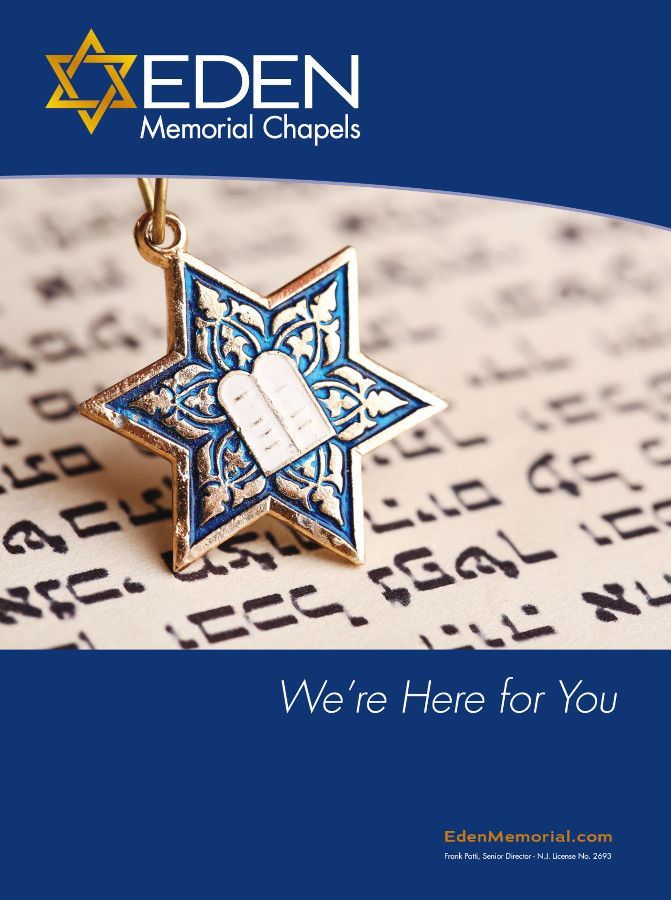Traditional Funeral Services
A traditional Jewish funeral follows sacred customs that hold deep cultural and religious significance. These time-honored rituals, often overseen by the Chevra Kadisha, ensure that the deceased is prepared for burial with dignity and respect.
The process begins with Tahara, a ritual purification and washing, followed by dressing the deceased in Tachrichim, simple white burial garments that symbolize equality in death. A Kosher all-wood casket (Aron) is traditionally chosen, reflecting the Jewish value of simplicity.
The funeral service includes several meaningful traditions, such as kriah (the tearing of garments by close relatives), the recitation of prayers and psalms, eulogies (hesped), and the burial ceremony (kevurah). A rabbi typically leads the service, guiding mourners through the spiritual and emotional aspects of the farewell.
For the final resting place, options include in-ground burial or placement in a columbarium, providing a dedicated space for family and friends to visit. The Jewish funeral tradition is deeply rooted in honoring the deceased, practicing modesty, and offering communal support. Ensuring that these customs are observed with care and sensitivity allows for a meaningful and respectful farewell in accordance with Jewish values.
Jewish Funeral Traditions & Customs
A funeral service, whether traditional or more modern, has two functions: to acknowledge the life and death of an individual and to bring the bereaved together in support of one another. The following list includes various types of services that our team can assist in planning for your loved one’s funeral.
- Tahara: A ritual washing of the deceased’s body by a group known as the Chevra Kadisha (holy society) to purify and prepare the body for burial.
- Shmira: The practice of guarding the body from the time of death until burial, ensuring that the deceased is never left alone.
- Tachrichim: Dressing the deceased in simple white burial shrouds, symbolizing equality in death.
- Aron: The use of a plain, all-wood casket, known as an Aron, to honor the principle of simplicity in burial.
- Kriah: The symbolic tearing of a garment or ribbon by close relatives as an expression of grief and mourning.
- Hesped: Eulogies given during the funeral service to honor and remember the life of the deceased.
- Kevurah: The act of burial, emphasizing the importance of returning the body to the earth as soon as possible.
- Shiva: A seven-day mourning period observed by close relatives, during which they receive visitors and express their grief with the support of the community.
- Shloshim: A thirty-day mourning period, during which some mourning practices continue, although with reduced intensity.
- Yahrzeit: The anniversary of the death, observed annually, often marked by lighting a memorial candle and reciting the Kaddish prayer.
- Unveiling: The ceremony of placing a headstone on the grave, usually occurring within the first year after death.
- Kaddish: A prayer recited by mourners during various stages of mourning, emphasizing the sanctification of God’s name.
These traditions and customs may vary among different Jewish denominations and individual families, but they collectively reflect a rich tapestry of rituals designed to honor the deceased and provide comfort to the bereaved.
Common Questions:
Why is having a place to visit so important?
To remember, and to be remembered. A permanent memorial in a cemetery provides a focal point for remembrance and memorializing the deceased. Memorialization of the dead is a key component in almost every culture. Psychologists say that remembrance practices serve an important emotional function for survivors by helping them bring closure, which allows the healing process to begin. The provision of a permanent resting place is an important part of this process.
What options are available besides ground burial?
Besides ground burial, some cemeteries offer interment in lawn crypts or entombment in mausoleums. In addition, most cemeteries provide options for those who have selected cremation. These often include placement of cremated remains in a niche of a columbarium or interment in an urn space.
Can pallbearers be included in the service?
In Jewish funerals, the role of a pallbearer is often performed by close friends or family members of the deceased. The pallbearers are responsible for carrying the casket from the funeral ceremony to the burial site. The selection of pallbearers may vary based on cultural and regional practices, but it is common for adult male relatives or friends to fulfill this role.
The number of pallbearers is typically uneven, with an odd number such as three, five, or seven, and they are usually of the same gender as the deceased. It is considered an honor to be chosen as a pallbearer, and those selected are expected to fulfill this duty with respect and solemnity.
In more traditional Jewish communities, it is common for the Chevra Kadisha (holy society) or the funeral director to coordinate and assist in selecting pallbearers, ensuring that the customs and traditions surrounding the funeral are upheld with dignity.
What can a non-Jewish person expect at the funeral?
Attending a Jewish funeral as a non-Jewish person may be a unique experience, and it’s helpful to be aware of some common customs and practices to navigate the event respectfully. Keep in mind that customs may vary among different Jewish denominations and communities.
Here are some general expectations:
- Dress Code: Dress conservatively and in somber colors. It’s common to wear dark clothing as a sign of respect for the deceased and the mourning family.
- Service Structure: Jewish funeral services are typically brief and may include prayers, psalms, eulogies (hesped), and the recitation of the Kaddish prayer. The service may be conducted by a rabbi or another designated individual.
- Closed Casket: It is common for the casket to remain closed during the funeral service and only opened at the gravesite for identification purposes.
- Kriah (Tearing of Clothing): Close relatives may participate in the ritual of tearing a garment or ribbon (kriah) as a symbolic expression of mourning. This tearing is often done at the beginning of the funeral service.
- Burial Customs: The act of burial (kevurah) is a central aspect of Jewish funeral customs. The burial typically takes place as soon as possible after death, often on the same day. The casket is lowered into the ground, and attendees may participate in placing earth on the casket as a sign of participation in the burial.
- Shiva and Mourning Period: After the funeral, the family may observe a mourning period known as Shiva. During this time, family and close friends gather at the home of the deceased to receive visitors and offer mutual support. As a non-Jewish guest, you may consider paying a shiva call to express your condolences.
- Kaddish: The Kaddish prayer is recited by mourners and is a central part of Jewish mourning rituals. It is recited at various stages of mourning, including during the funeral service.
- Cemetery Practices: Some Jewish cemeteries may have specific customs regarding the placement of stones on the gravestone as a symbolic gesture of remembrance.
It’s always respectful to familiarize yourself with the specific customs of the particular Jewish community hosting the funeral. If you have any questions or concerns, don’t hesitate to ask a family member, friend, or the funeral director for guidance. Showing empathy, sensitivity, and a willingness to participate in the customs when appropriate can go a long way in offering support to the mourning family.


